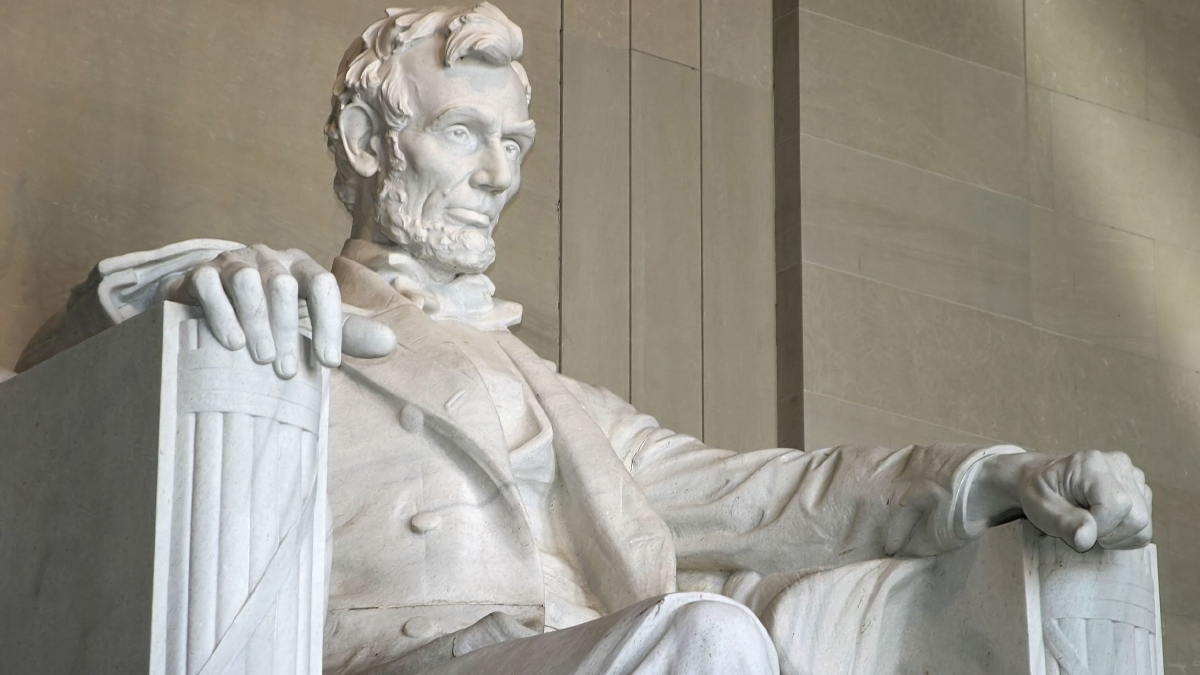Well, OK, I guess the president learned his American history at Trump University. In an interview with the Washington Examiner, he recently seemingly confused Andrew Jackson’s behavior during the nullification crisis in 1832 with the Civil War, which didn’t occur until 16 years after Jackson died in 1861. The two events do have some similarity―with Jackson’s threatening to use force against South Carolina for trying to nullify federal tariff law and threatening to secede from the union (nullification of federal laws writ large) being antecedent to southern states, led by South Carolina, seceding after Abraham Lincoln got elected in 1860 on the Republican platform of stanching slavery’s expansion westward. Trump, perhaps reflecting his own “tough guy” negotiating tactics, seemingly believes that the Civil War could have been avoided by Jackson, Trump’s favorite president because he was also an angry populist, working things out.
Yet despite Trump’s fuzziness on details, he sometimes can intuitively bring up legitimate questions that the establishment fails to ask (for example, why does the United States continue to pledge to defend rich allies who now could more than afford to defend themselves against usually poorer neighbors). In the interview with the Examiner, Trump queried: “Why was there the Civil War? Why could that one not have been worked out?”
Of course, the standard nationalistic historical narrative in American school textbooks enshrines Abraham Lincoln as a demi-god who saved the union and freed the slaves. Any questioning of this equally questionable version of history leads to suspicions of Confederate flag-waving sympathies or even racism. As a descendent of Quakers from a blue Northern state (both in 1861 and oftentimes now), my criticism of Lincoln comes from the other direction.
Was the worst war in American history—which killed 750,000 troops on both sides, including 40,000 African American soldiers, and 100,000 civilians—really worth it to give slaves only nominal freedom and another century of heavy oppression at the hands of bitter Southern whites? Martin Luther King said, with only a little exaggeration, that a form of slavery still existed at the time of the civil rights movement of the 1950s and 1960s. After the war, the white South enacted black codes, which required “freed slaves” to work for their former masters for a pittance, a system of vagrancy laws under which African Americans were arrested and had to work off their sentences, and Jim Crow segregation of the races. If all this newfound “freedom” wasn’t enough, white Southerners, angry at having lost the war, resorted to terrorism against African Americans through attacks by the Ku Klux Klan and other white vigilante groups. In short, the white Southern resentment over losing the war exacerbated the American racial divide, which continues today.
Going back to the most important question that Trump inadvertently stumbled upon—why couldn’t the problem of slavery have been worked out?—the conventional historical analysis usually only points to two unsatisfying alternatives: let the South secede from the Union or cut a deal that put up with some expansion of slavery in Western territories. Yet Abraham Lincoln, in the 1840s almost twenty years before the war, had advocated another, more viable solution that many other countries successfully used to peacefully end slavery (a much broader plague than merely an American one): compensated emancipation. Southerners owned slaves for economic reasons and likely would have freed them if given cold, hard cash. And even large compensation to slave owners would have been less costly than the enormous bill—in lives (including African Americans both during and after the war), money, and long-term tearing of the American social fabric—that the horrendous four-year war on American soil delivered.
Yet Abraham Lincoln curiously abandoned compensated emancipation―until too late, when he was desperate to stop a war that was spiraling out of control with no end in sight—ignored Northern public opinion that wanted to conciliate the South, refused to negotiate with Southern peace commissioners, and instead maneuvered Southern hotheads to attack Fort Sumter by resupplying the fort, knowing that this would trigger a war. He famously said if the South attacked the ship they would be “firing on bread.”
But didn’t Lincoln at least have a noble cause in mind when he provoked the war: freeing the slaves? No, he provoked the war because he believed he had gotten a mandate from the people for the Republican agenda―even though he won less than 40 percent of the popular vote, an all-time low—and didn’t want to compromise what he felt the Republicans rightfully had won during the 1860 election. Lincoln clearly stated that his original goal was not to free the slaves, but to save the Union. His faux liberating of the slaves with the Emancipation Proclamation was a wartime propaganda expedient that freed slaves only on territory held by Southern armies. In fact, arguably, although some Union armies liberated slaves as they advanced on the battlefield, Lincoln never freed any slaves; the Thirteenth Amendment doing so was ratified only after Lincoln’s death. Also given short shrift by most historians is Lincoln’s unnecessary dictatorial rule during the war—for example, jailing journalists and opponents of the war, unconstitutionally suspending the writ of habeas corpus, and creating kangaroo military tribunals in non-combat areas. These actions set a bad precedent for future needless autocratic behavior by U.S. presidents during wartime.
In short, the answer to President Trump’s question about whether the Civil War could have been avoided is “very possibly,” but not by aggressive Jacksonian―or Lincolnian―methods.

















